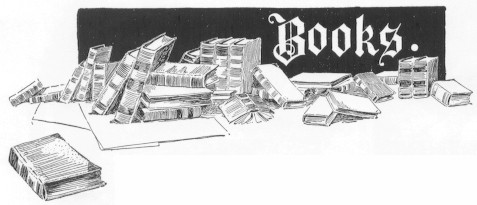Book/Internet Overlap
Today, we search for duplication in two great libraries. The University of Houston's College of Engineering presents this series about the machines that make our civilization run, and the people whose ingenuity created them.
"You can get that off the Internet," people like to say. The vast sea of electronic material gives us the feeling that, as long as we have a modem and a monitor, we can forget printed matter.
Last spring, when the man in charge of Florida's community college computers spoke about the Internet, he drew two circles, side by side. The larger circle represented the information content of libraries. The smaller one represented the content of the Internet. What was important about his sketch was that the two circles barely overlapped. One source doesn't begin to replace the other. When we need bits of information, we go to the Internet, or when we want to see what's new or when we want to be part of an interactive community of ideas.
But to embrace the whole story we read a book. When we need a broad context to verify what we're being told, we have to go to solid irreducible print. The Internet doesn't hold a fraction of all that's been thought out and written down. It never will. The computer doesn't offer that kind of experience. Rather, our fingers move upon the mouse or the keyboard issuing instructions and joining the game.
The computer is about dancing into an interaction, not about submitting ourselves to the full expression of an idea. It's about trying out ideas, not about study. The other day I got a piece labeled "MIT commencement address by Kurt Vonnegut." "Wear sunscreen," it began. "If I could offer you only one tip for the future, sunscreen would be it." The piece went on to say,
Enjoy the power and beauty of your youth. Oh, never mind. You will not understand the power and beauty of your youth until they've faded.
The address was short and poignant. Minutes later, a second e-mail announced that it wasn't by Vonnegut at all. It was by a columnist named Mary Schmich. Two days later Schmich wrote a whimsical rejoinder. For a few hours, it circulated on the Internet.
The exchange wasn't about truth and falsehood. It was about play. It was about the moment. It had no more permanence than the fleeting youth that Mary Schmich lamented. In that, the exchange reveals what the Internet is really all about.
Books have always been a thing apart from human concourse. They are a quiet room, apart from the marketplace. The Internet is about business, chat, and play -- all the time with both hands on the wheel. It's flawed, exciting, unstable -- and not to be confused with the full record of ourselves that we keep in books.
People often ask when my programs will come out in book form. They might someday, but then they'll be a different animal. Any program that flits by in three minutes is the stuff of the Internet. The Internet is where you should look for it -- and where you should have no trouble finding it.
I'm John Lienhard, at the University of Houston, where we're interested in the way inventive minds work.
(Theme music)
J. Richard Madaus, director of the College Center for Library Automation, which provides computer support for the Community College Libraries throughout Florida, spoke at the Dade County Library Association Annual Workshop held on March 14, 1997, in Miami (see Episode 1224). I am grateful to Houston attorney Steve Hamilton, the first to forward all the Schmich/Vonnegut postings to me.
I first offered these ideas in a different form in Episode 877, and I return to them from other angles in other episodes - 1283, 1374, and 1528, to name just three.
I finally did write a book version of episodes from the first year in 1999.
Lienhard, J. H., The Engines of Our Ingenuity: An Engineer Looks at Technology and Culture. New York: Oxford University Press, 2000.
